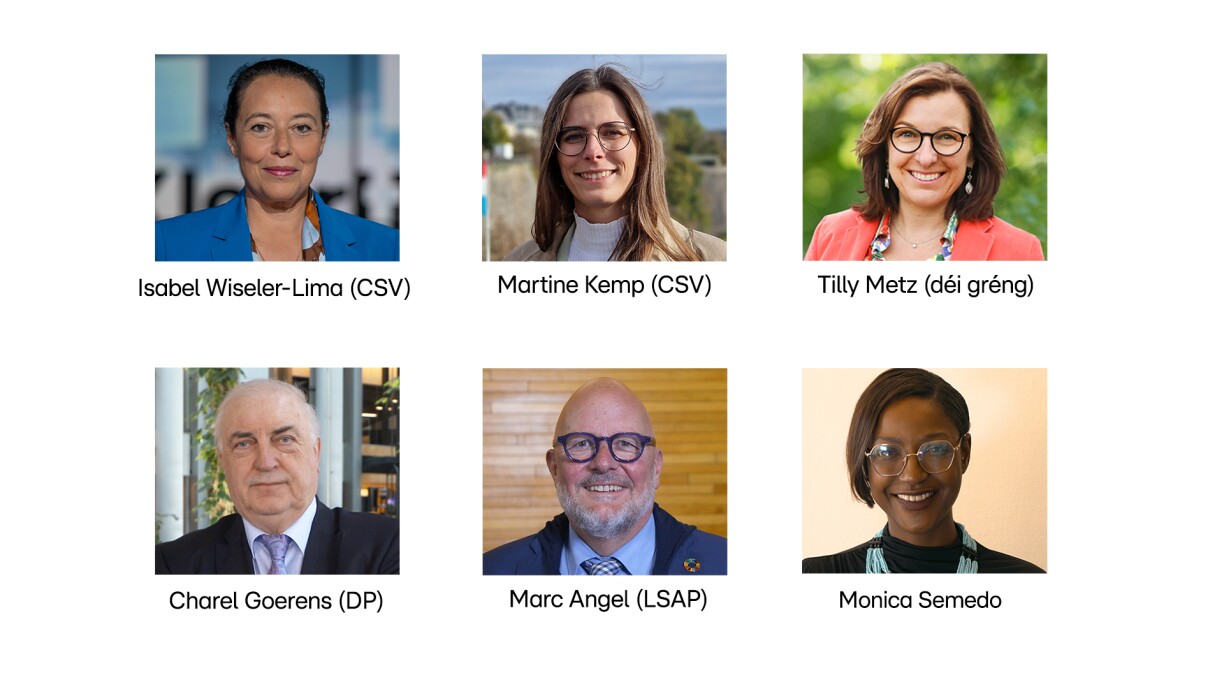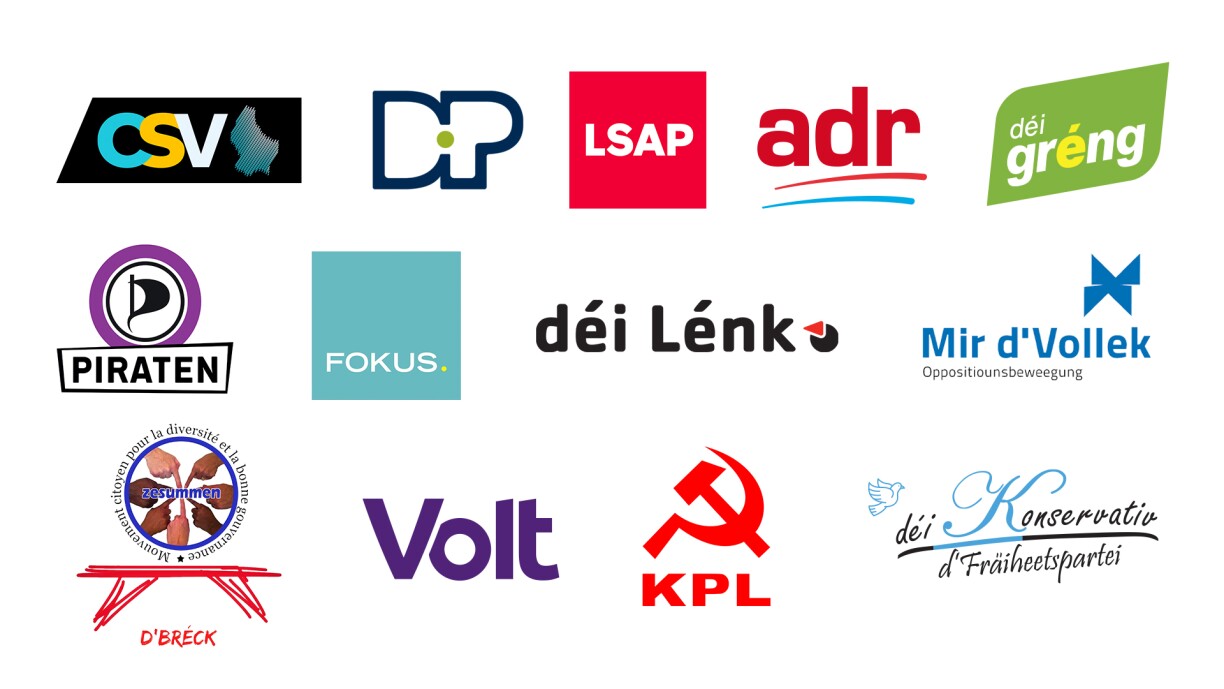
As one election cycle wraps up, another emerges on the horizon, marking the conclusion of four elections within a span of twelve months. Following Luxembourg’s super election year of 2023 and the recent social elections on 12 March, the forthcoming European elections stand as the final electoral event for the foreseeable future.
These elections hold significant importance for the European continent as a whole. For Luxembourg, they serve as a crucial gauge of public sentiment following the legislative elections six months prior. From 6 to 9 June, citizens across the EU will elect representatives to the European Parliament. In Luxembourg, the key date is 9 June, determining the individuals who will continue to represent the nation in Strasbourg and Brussels, or those who will succeed them.
Currently, the Christian Social People’s Party (CSV) holds two seats, while the Democratic Party (DP), the Luxembourg Socialist Workers’ Party (LSAP), and the Green Party (déi Gréng) each hold one seat. Additionally, Luxembourg is represented by one independent Member of the European Parliament (MEP).

Everyone on the electoral roll is mandated to cast their ballot every five years to elect Luxembourg’s representatives in the European Parliament. These representatives play a crucial role in shaping legislation that impacts the entire EU, thus affecting the lives of all citizens. With six representatives to be elected, each voter holds six votes to allocate.
Unlike the legislative elections of October 2023, the European elections feature a single constituency for the entirety of Luxembourg. 13 parties and groups are vying for seats in the 2024 European elections.

Every individual holding Luxembourgish nationality is required to exercise their right to vote, provided they have reached the age of 18 by the day of the elections.
Similar to municipal elections, non-Luxembourg nationals who are citizens of EU member states and reside in the Grand Duchy are also eligible to participate in the European elections. However, it is imperative to note a crucial date for those intending to vote this year: 15 April, precisely 55 days prior to the election day. In other words, you have to be registered by Monday.
It is important to emphasise that previous registration for municipal elections as an EU citizen does not automatically carry over to the European elections. Thus, individuals must complete the registration process anew, either via myguichet.lu or at the local town hall.
In the 2019 European elections, approximately 22,000 non-Luxembourg nationals were registered to vote. This trend of foreign voter participation in Luxembourg is on the rise, albeit gradually. According to the Centre for Intercultural and Social Studies and Training (CEFIS), voter turnout in the European elections among non-Luxembourg nationals was 14% a decade ago. In the 2023 municipal elections, this figure increased to around 20%, representing an electorate of approximately 50,000 non-Luxembourg nationals.
In the upcoming European elections, approximately 200,000 citizens hold the theoretical right to cast their votes in the Grand Duchy.
During the legislative elections, approximately one in four voters opted for postal ballots. Similar to previous elections, proxy voting will not be permitted in June, necessitating individuals who cannot physically attend the polling stations to request postal ballots. This requirement also extends to Luxembourg nationals residing abroad.
Requests for postal voting should be directed to the respective municipality where the voter is registered. Registration for postal voting is already open and the deadline for requesting postal ballots is 15 May. However, for voters residing abroad, an earlier deadline of 30 April is set to ensure timely delivery of postal ballots.
Requesting postal ballots can be conveniently done through myguichet.lu from the comfort of one’s home, or through traditional methods such as post or in-person visits to the relevant town hall.
Lists of candidates for the 9 June European elections could be submitted to the Luxembourg City court until 6pm on Wednesday evening. Notably, a record-breaking 13 political parties or groups, each presenting six candidates, are contesting in the 2024 European elections. This diverse field includes both established political parties and emerging smaller parties.
But who are the parties and candidates running to represent Luxembourg in the European Parliament? Our colleagues from RTL Télé took a closer look.
Mir d’Vollék
Campaigning for a “different Europe” and highlighting doomsday scenarios, the opposition movement Mir d’Vollék (“We the People”) is led by two organisers of protests against coronavirus measures, one of whom has faced court convictions for insults.
Zesummen – d’Bréck
A new and completely unknown union between the party Zesummen (“Together”) and the association D’Bréck (“The Bridge”), spearheaded by former LSAP and Green Party politician David Foka. Foka emphasises the importance of cultural cohesion in Europe and beyond.
FOKUS
Building on moderate successes in previous elections, FOKUS is once again participating in the European elections. Despite allegations of harassment, current MEP Monica Semedo is given the opportunity to defend her seat in Strasbourg under the FOKUS banner.
déi Konservativ
Advocating for “Luxembourg First” rather than a stronger EU, déi Konservativ (“The Conservatives”), the party of, with, and for Joé Thein, are contesting the European elections for the second time.
Volt
The Volt party once again takes the opposite position and emphasises that the full potential of a united Europe must first be developed.
The Communist Party (KPL)
The Communist Party of Luxembourg (KPL) received endorsement from an anonymous MEP, exempting them from the signature collection process.
déi Lénk
Combatting social injustice and climate change at the European level, the Left Party presents a candidate list without lead candidates.
Alternative Democratic Reform Party (adr)
The Alternative Democratic Reform Party (adr) is taking up the fight against “woke” and “gender ideology.” Lead candidate Fernand Kartheiser advocates for less Europe and more focus on Luxembourg’s interests. He wants to campaign against “radical left-wing thinking” and “illegal migration” in the European Parliament.
Pirate Party
With a focus on guaranteeing the human and social aspects of Europe, the Pirate Party’s lead candidate is Raymond Remakel. The Pirate Party’s list does not feature any professional politicians known from the Chamber of Deputies. According to Sven Clement, this would be “cheating the voters.”
The Greens
The Green Party clearly does not share the same view. MP François Bausch is the familiar face behind the two lead candidates MEP Tilly Metz and Fabricio Costa.
Democratic Party (DP)
Alongside 72-year-old MEP Charles Goerens, who received by far the most votes in Luxembourg in 2019, 28-year-old Amela Skenderović is the other lead candidate for the DP.
Luxembourg Socialist Workers’ Party (LSAP)
The two lead LSAP candidates are Vice-President of the European Parliament Marc Angel and Danielle Filbig. Other candidates are the MPs Mars Di Bartolomeo, Franz Fayot, and Liz Braz. The latter has so declined to comment on whether she would accept an EU mandate at all. One possible reason for her candidature: collecting votes in order to win a second seat. The current EU Commissioner Nicolas Schmit is not on the LSAP list. As the lead candidate of the European Social Democrats, he could be given an even higher post in Europe.
Christian Social People’s Party (CSV)
The CSV’s lead candidate is the designated future EU Commissioner for Luxembourg, Christophe Hansen. Current MEP Isabel Wiseler-Lima is running as second lead candidate alongside Hansen.